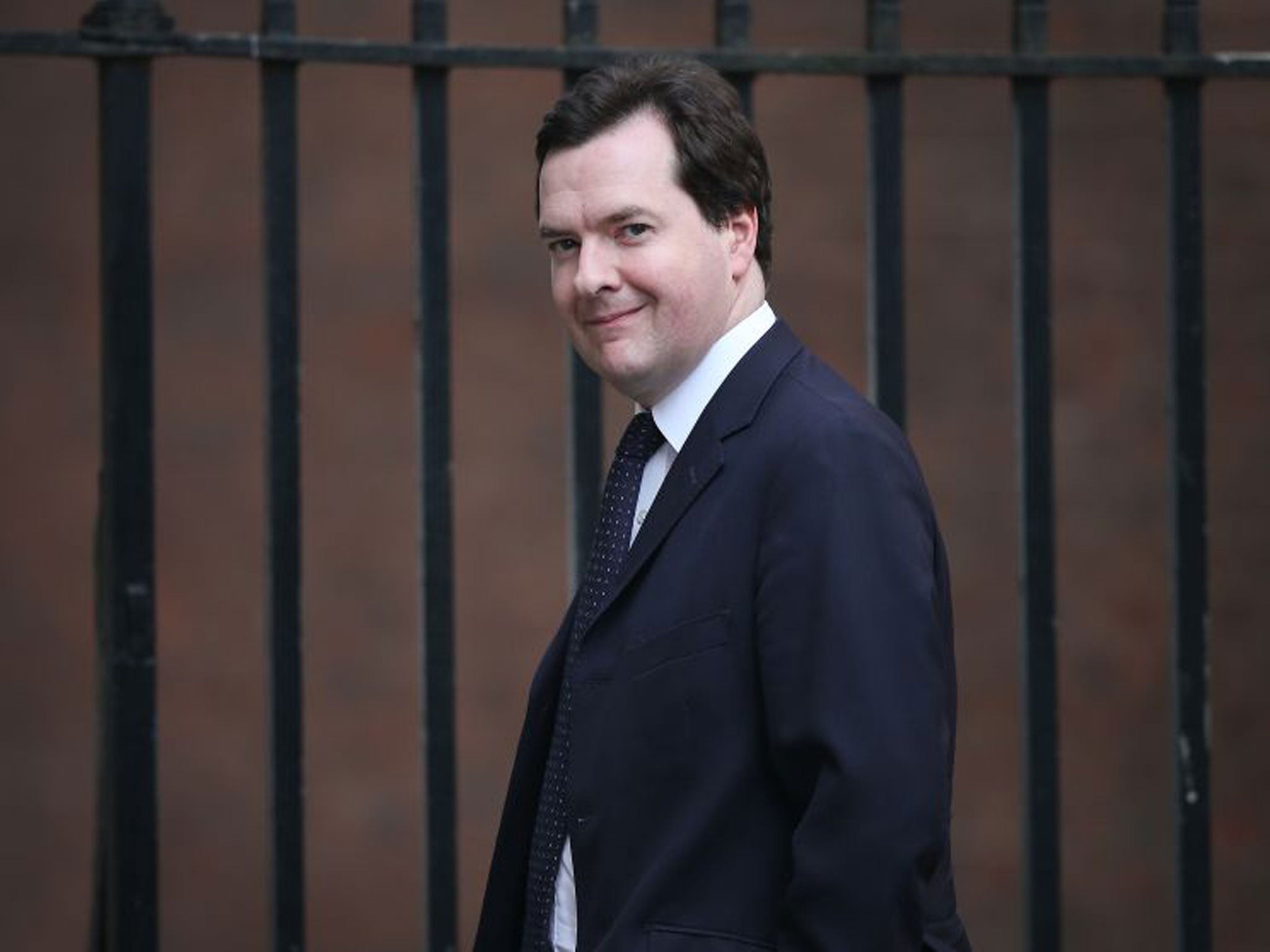George Osborne’s tax cuts penalise single-earner families with a stay-at-home parent, claims bishop

A Church of England bishop has accused the Government of penalising stay-at-home mothers and carers by discriminating against families in the tax and benefits system.
The criticism came after an inquiry by a Christian charity to be launched on Tuesday found that that married couples with only one earner keep less of every extra pound they earn in the UK than in any other country in the developed world.
Last month, church leaders including 27 Anglican bishops condemned the Coalition’s welfare policies for causing hardship and hunger, and Cardinal Vincent Nichols, leader of the Catholic Church in England and Wales, said its benefit cuts were “a disgrace". Now the Government is under attack for being “anti-family” in a study carried out by the charity Christian Action Research and Education (CARE).
The Rt Rev Peter Foster, Lord Bishop of Chester, said in the report that David Cameron is moving in the opposite direction from his 2010 election pledge to make Britain “the most family-friendly country in Europe”.
He expressed concern that the tax burden on one-earner married families in the UK is significantly above the average for the 34-nation Organisation for Economic Co-operation and Development (OECD). He said it was even “more disturbing” that the tax burden for a one-earner married couple with two children on average wages is moving closer to that for single people.
“We cannot promote such clear fiscal individualism and not expect to reap the consequences,” he said. “Far from delivering policy solutions to fix ‘broken Britain’, it would seem that the Government… was more interested in exacerbating our social brokenness, however inadvertently, by promoting fragmentation.”
The Bishop also sounded the alarm about the lack of work incentives for one-earner married couples in the UK, after the study showed that those on £27,000 a year lose more of every extra pound they earn - 73p - than in the rest of the OECD. He said this meant Britain was “the last developed nation” to be able to lay claim to Mr Cameron’s goal of being the “aspiration nation".
CARE said in its report: “This crippling [effective marginal tax] rate means that these ‘squeezed middle’ families only saw 27p of every extra £1 earned. This state of affairs does more to disincentivise work than the fiscal arrangements of any other OECD country.”
The church charity criticised George Osborne for raising the personal tax allowance to £10,000 a year from next month, claiming this entrenches “individualism” rather than helps families.
But Nola Leach, chief executive of CARE, said the group was “delighted” that the Chancellor has announced that married couples will receive a transferable tax allowance from April next year, describing it as an “inspired move". But she added that the change is “very limited” as it will be worth just £200 a year, and will not tackle the problems identified in the report. CARE called for “a fully transferable allowance” for all one-earner married couple families as soon as possible.
Government ministers insist their welfare reforms have improved work incentives. A Treasury spokesman said: "The Government's long-term plan is to build a stronger economy and a fairer society. Because we're getting the public finances under control, we're able to help people who work hard by cutting income tax - the UK has one of the highest tax-free allowances in Europe - freezing fuel duty and introducing a new marriage tax allowance."
Ministers point out that 80 per cent of their austerity measures come from spending cuts, limiting the share from tax rises to 20 per cent.
Subscribe to Independent Premium to bookmark this article
Want to bookmark your favourite articles and stories to read or reference later? Start your Independent Premium subscription today.

Join our commenting forum
Join thought-provoking conversations, follow other Independent readers and see their replies